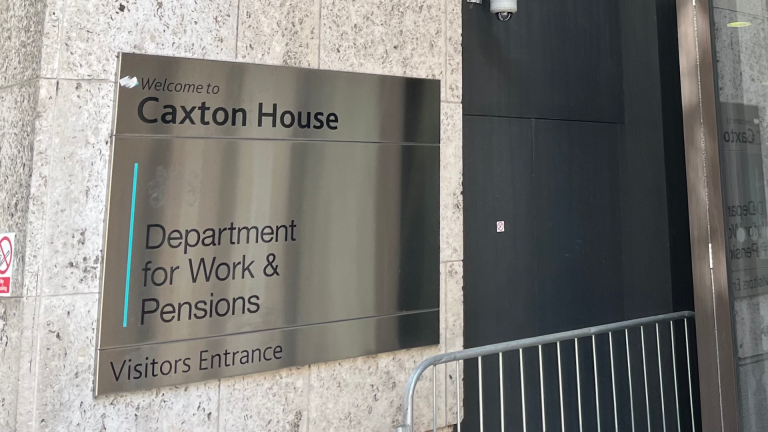It means people entitled to a state pension (currently set at 66) are more likely to have enough income to cover the real cost of living.
State pension levels were linked to earnings until 1980. Over the next three decades, pension payments were dragged down by around 40 per cent in real terms relative to average wages. The policy was reintroduced by the Conservative-Liberal Democrat coalition in 2010.
How much will state pensions rise?
According to the triple lock, state pension will rise by whichever is highest: CPI inflation, wage growth or 2.5%. It’s likely that wage growth, which recently hit 8.5%, will be the highest of these and pensions will see a substantial increase with it.
That’s as long as the government continues with the pension triple lock. Ministers claim to be “committed” to it, but the government has steered away from it before when wage growth was disproportionately high.
Why did the government temporarily suspend the pension triple lock?
Average wage growth was much higher than usual following the pandemic at around eight per cent. This was down to a couple of factors: mainly the effect of millions being taken off furlough and returning to work on full pay. Some employers in hard-hit sectors such as haulage sharply increased wages to attract staff, driving up the country’s average wages.
Triple lock rules mean pensions should be increased by the same amount, if wage growth is the highest of the three factors – but the government said that was unaffordable.
Advertising helps fund Big Issue’s mission to end poverty
Calls to pre-emptively scrap the triple lock began in 2020 when wage growth for this year was incorrectly forecast to be as high as 18 per cent.
Despite pledging in the 2019 Conservative manifesto that it would maintain the triple lock for the duration of this parliament, Boris Johnson’s government successfully sought to change the rules in 2021 through the Social Security (Up-rating of Benefits) Bill.
What do people think about the pension triple lock?
People were deeply angry when the government suspended the pension triple lock, and the policy is important among older voters (who have historically been more likely to vote Conservative).
“The Conservatives will pay an eventual price at the polls,” Dennis Reed, director of campaign group Silver Voices, told The Big Issue at the time.
“The Conservative government has made a rod for its own back by whipping its MPs to vote against the interests of their older constituents. The combination of the cost-of-living crisis and this broken manifesto pledge will throw hundreds of thousands more pensioner households into poverty over the coming year.”
But campaigners also warn that the rising state pension according to the triple lock could be “wholly unfair” if benefits are not also increased in line with wage growth.
Advertising helps fund Big Issue’s mission to end poverty
The government plans on increasing benefits in line with inflation in April, but this is lower than the rate of wage growth. This would mean that, once again, those on the lowest incomes are left behind.
One in four pensioners in the UK are classified as a millionaire after retirement wealth has boomed, according to analysis of Office for National Statistics data by the Intergenerational Foundation.
Alfie Stirling, Chief Economist at the Joseph Rowntree Foundation said: “Rising real earnings on average in July is good news. But the effects are not being felt equally and many workers in low paid sectors like retail and hospitality saw their pay fall further behind inflation.
“Thanks to the security of the triple lock, today’s data all but confirms the state pension will rise by 8.5% as well. But this throws the situation with benefits into stark relief, where the government has refused to confirm they will even follow their own rules and increase payments in line with September’s inflation rate in the usual way.”
Read more here.
Get the latest news and insight into how the Big Issue magazine is made by signing up for the Inside Big Issue newsletter
Advertising helps fund Big Issue’s mission to end poverty










